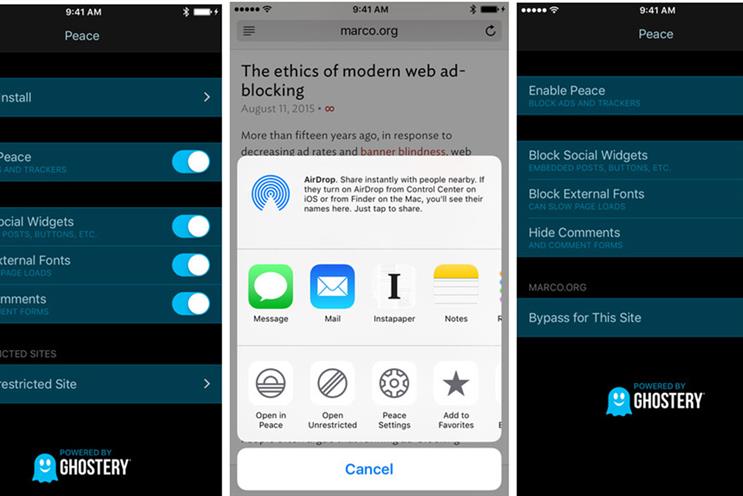
Marco Arment, the former chief technology officer at Tumblr, created Peace in order to block ads from showing up on web pages viewed on a smartphone.
After being published in Apple's app store last week, the £2.29 app raced to the top of apps which Apple users had paid for.
But in a on Friday evening, Arment revealed that he had decided to delist the product and would refund anyone who had paid for it.
Arment said: "Achieving this much success with Peace just doesn’t feel good, which I didn’t anticipate, but probably should have.
"Ad blockers come with an important asterisk: while they do benefit a ton of people in major ways, they also hurt some, including many who don’t deserve the hit.
"Peace required that all ads be treated the same — all-or-nothing enforcement for decisions that aren’t black and white.... If we’re going to effect positive change overall, a more nuanced, complex approach is required than what I can bring in a simple iOS app.
I appreciate the kind words. Don’t worry about me — I did what I thought was best to fix a big mistake, and feel good about my decision now.
— Marco Arment (@marcoarment)
I’m declining all media interviews on this, and would rather not join any other ad-blocking-related efforts. This isn’t a business for me.
— Marco Arment (@marcoarment)
He added: "I’ve learned over the last few crazy days that I don’t feel good making one and being the arbiter of what’s blocked."
The popularity of ad blocking software was the subject of lively debate at last week's Dmexco conference in Germany, where one software maker described the media industry and ad blockers as being "at war".
In July a YouGov survey revealed that one in seven Brits are using ad blocking software. The survey, commissioned by the IAB, found 22 per cent of adults in Britain have downloaded ad blocking software.


.jpg)


.jpg)